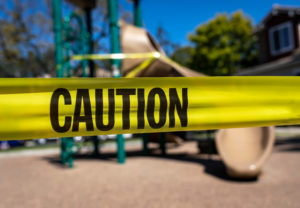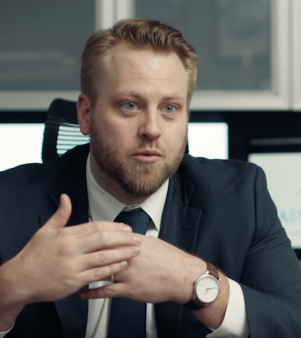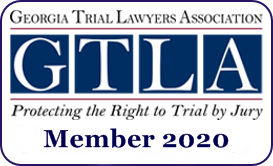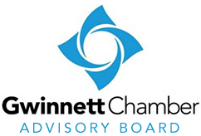
When you enter the property of another individual, entity, or business, you’re placing a certain amount of trust in the owner of that property. Few people walk into a store or someone else’s home and immediately begin scanning the area for potential dangers.
It’s reasonable to assume that property owners should exercise a certain level of care to keep legal visitors to their properties safe. This type of consideration is required of property owners by Georgia state law.
Property and business owners who neglect to keep their locations safe or fail to adequately warn visitors of potential hazards directly increase the risk of accidental injury to everyone. If you were injured in an accident on a negligent property owner’s property, you could be eligible to recover financial compensation from the property owner or their insurance provider. The trial lawyers at Cain Injury Law are here to help.
Cain Injury Law is dedicated to standing up for the rights and best interests of premises liability accident victims just like you in Lawrenceville and throughout surrounding regions of Georgia.
We understand that insurance claims and legal processes can be intimidating and overwhelming. There’s no reason for you to face these challenges alone. When you hire us, we’ll treat you like family while providing the aggressive and effective representation you need to recover. Best of all, we offer free case reviews and do not collect any legal fees until we win compensation for you.
Call us now or contact us online to find out more.
What Is Premises Liability?
“Premises” is a legal term for a piece of land and the structures that are on it. “Liability” describes a type of lawful obligation, so “premises liability” can be understood as the legal responsibility that landowners or occupants have concerning their properties.
Most premises liability cases involve people who have been seriously or fatally injured while on a property that is owned or controlled by another individual, business, or government agency. Premises liability claims are typically filed against homeowners, landlords, business or franchise owners, property owners, or government entities that fail to keep their premises reasonably safe for visitors.
Dangerous conditions can take many forms and could be present on any property, no matter how big or small. Poor structural maintenance, inadequate security, malfunctioning machinery, or even a general lack of cleanliness may create unsafe environments and lead to accidents.
It’s also important to note that, by law, a property owner’s duty of care does not stop at the boundaries of their premises. Civil courts in the state of Georgia have consistently ruled that owners and occupiers must keep “approaches” to their properties, such as exterior ramps, staircases, or sidewalks, reasonably safe and well-maintained. When property owners fail to observe this duty of care, accident victims have the right to hold them responsible for any resulting injuries through premises liability claims.
Who Is Responsible for Damages in Premises Liability Accidents?
Property owners often bear at least some responsibility for serious injuries that occur on their premises. However, a property owner or occupier does not owe the same duty of care to all individuals who visit their premises. For example:
- Invitees to a property are entitled to the highest legal duty of care from property owners and occupiers. An invitee visits a property for the owner’s benefit, such as a customer in a store. To protect invited visitors, property owners must repair known hazards, regularly inspect for unknown dangers, and warn invitees of potential unaddressed hazards on their premises.
- Licensees are owed a special duty of care from property owners that are very similar to the duty of care owed to invitees. Licensees are distinct from invited guests because they visit the properties of others for their own benefit, such as a door-to-door salesperson. Property owners and occupiers are expected to repair or warn licensees of known hazards, just like with visitors. However, they do not owe licensees the same duty of care to regularly inspect for unknown dangers.
- Trespassers to a property are generally not owed a legal duty of care by property owners or occupiers, beyond the expectation that owners should not attempt to cause trespassers active harm – for example, by setting a booby trap. One exception is for children who are trespassing. Children are not expected to exercise the same level of caution as adults. As such, property owners are expected to remove or conceal “attractive nuisances” on their premises, such as unsecured swimming pools or abandoned cars, to discourage would-be child trespassers.
Keep in mind that just because you enter a property with the status of an invitee does not mean that you are automatically considered an invitee for your entire visit. For example, if you legally enter a business location but then proceed into an off-limits area, it’s possible that the business owner no longer owes you the same duty of care since you have technically become a trespasser at that point.
Common Types of Premises Liability Cases
Many different conditions can lead to accidental injuries on unsafe premises. The most common types of premises liability accidents include:
- Slip and fall incidents
- Wet, flooded, or icy floor accidents
- A lack of wet floor signs after mopping
- Broken step or staircase accidents
- Missing guardrail or handrail accidents
- Unsafe elevator or escalator accidents
- Drowning or suffocation accidents
- Hazardous substance exposure
- Falling or flying object injuries
- Construction site accidents
- Amusement park accidents
- Dog or animal bite accidents
- Inadequate security that allows for violent incidents
- Hazardous workplace incidents
Compensation for Premises Liability Claims
If you were injured through no fault of your own on someone else’s property, you may have the right to pursue compensation for your losses through a premises liability claim. To recover financial compensation, you must demonstrate by a preponderance of the evidence that a property owner’s negligence directly caused the accident, and that the accident directly caused you significant harm. A preponderance of evidence means that it is more likely to be true than untrue.
Most personal injury claims are resolved through insurance settlements, but in some cases, lawsuits are necessary to get the compensation you need. Georgia follows a modified comparative negligence doctrine, which allows injury victims to recover compensation if they are less than 50 percent responsible for the accident.
A skilled attorney can help you identify and collect compelling evidence to build a strong case and make sure you are compensated for losses such as:
- Medical bills and other related expenses, such as ambulance service costs, for the treatment of immediate physical injuries caused by your accident
- Future expenses related to the treatment of your injuries
- Costs associated with physical or mental rehabilitation or therapy
- Repair costs for any physical property of yours that was damaged in the accident
- Lingering, non-physical damages like pain, suffering, emotional distress, and mental anguish
- Lost income, if your injuries force you to miss work
- Lost future wages or earning potential, if you are unable to return to your previous position after you recover from your injuries
- Loss of enjoyment or quality of life
- Loss of consortium or support, if your loved ones are affected by any limitations you experience because of your injuries
What to Do If You’ve Been Hurt on Someone Else’s Property in Lawrenceville
If you were hurt in an accident on a negligent property owner’s premises, you shouldn’t have to bear full responsibility for your recovery. There are specific actions you can take to help maximize the amount of rightful compensation you can recover, including:
- Removing yourself from immediate danger as quickly as possible
- Seeking prompt medical attention
- Calling the police, if needed
- Avoiding the urge to apologize or minimize your injuries
- Following your doctor’s prescribed treatment plan
- Documenting everything you remember about the incident
- Keeping a record of pay stubs, medical bills, and other related receipts
- Keeping a pain journal as a record of your non-physical injuries
- Avoiding communication with other parties about your case
- Avoiding admissions of fault or sharing unnecessary information with others
- Avoiding social media during the claims process
- Consulting an experienced Lawrenceville premises liability lawyer
Contact a Lawrenceville Premises Liability Lawyer
Premises liability cases in Georgia are subject to a two-year statute of limitations, the legal deadline for filing a personal injury lawsuit. This means that if you fail to make your claim within two years of your accident, you most likely will be unable to pursue the compensation you deserve. It’s crucial to act quickly.
If you were hurt in an accident on someone else’s property, the Lawrenceville premises liability lawyers of Cain Injury Law want to help. We work on a contingency fee basis, meaning you won’t pay us a cent unless and until we win compensation for your case. Your initial consultation is free.
Call us or contact us online to schedule your free case review now.










 Site by Consultwebs.com: Personal Injury Law Firm Website Designers/Lawyer Marketing.
Site by Consultwebs.com: Personal Injury Law Firm Website Designers/Lawyer Marketing.